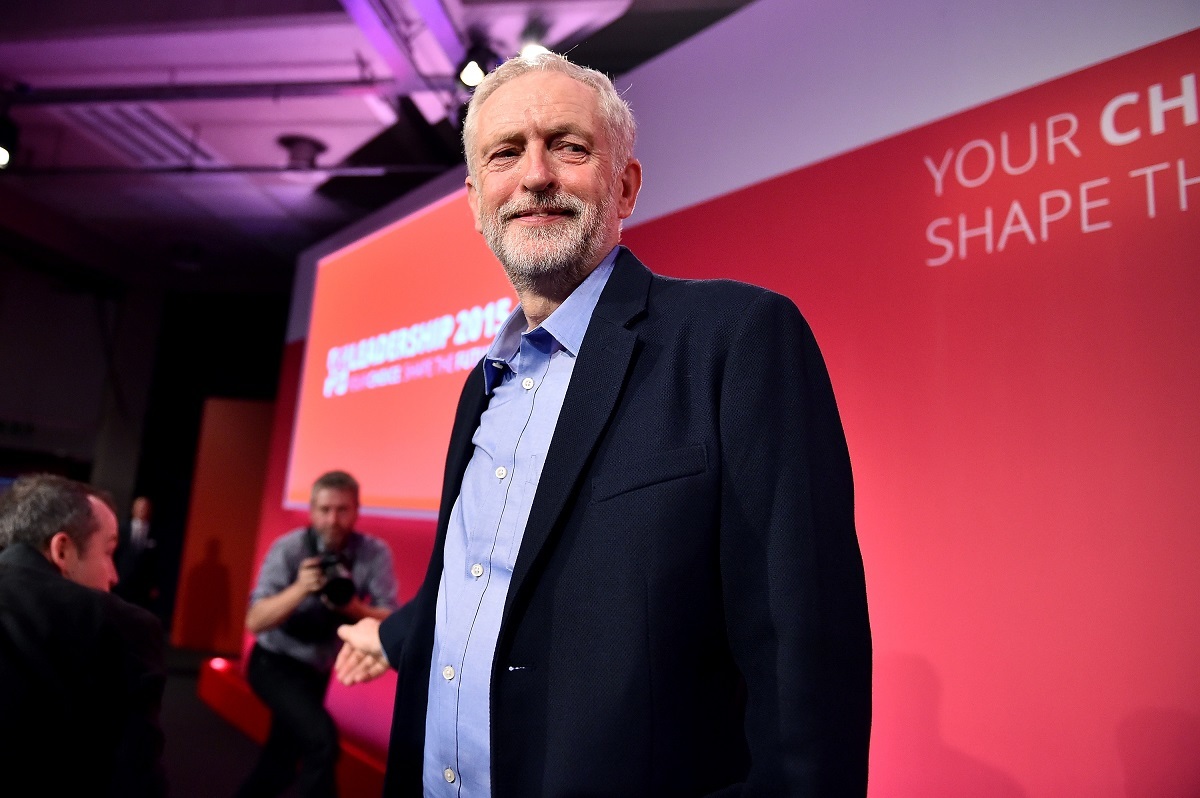
THE renewal of Trident will dominate the Labour conference this week with the party set for its first major policy showdown.
Britain’s nuclear deterrent supports thousands of jobs in Scotland and the north-west of England but is opposed by new Labour leader Jeremy Corbyn who has pledged to work with the SNP to block its renewal.
However, large swathes of Mr Corbyn’s shadow cabinet support Trident including Lord Falconer, shadow justice secretary, who yesterday claimed any vote in the conference in Brighton will not automatically make it party policy.
Lord Falconer, former flatmate of Tony Blair, says the way the Trident debate has been tabled means it is not binding. He explained: “Conference is not being asked whether it supports or doesn’t support Trident in a final way.
“Jeremy is opposed to Trident and he has been elected overwhelmingly by the members of the Labour Party.
“But that still leaves open the question of whether Labour will be anti-Trident. I think the public think we’ve already resolved it by electing Jeremy but that’s not right.
“Conference has probably voted against Trident on many occasions without it ever being constitutionally what Labour’s party position is.”
But Mr Corbyn fully is unlikely to move from his stance.
He said: “I think Trident should go.
“I do not believe it is something that anyone in their proper mind would ever want to use.
“So I ask the question is it really sensible to commit such a vast proportion of our assets £100 billion over 25 years to this when we could be spending it on developing our industrial infrastructure?”
Trident will also be back on the Westminster agenda next month with the SNP planning to force a vote on the issue in order to test Labour’s mettle if its conference has backed getting rid of the nuclear deterrent.
Labour’s first conference since Corbyn’s dominant leadership victory will see the party try to re-establish its economic reputation.
Shadow chancellor John McDonnell has sought to reassure voters that Labour is not a “deficit denier”, while also offering a different approach to balancing the budget than the Conservatives.
Mr McDonnell revealed the Opposition will support George Osborne’s fiscal charter designed to guarantee “budget responsibility”.
But he insisted they will seek to protect low and middle-earners and oppose the tax cuts proposed by the Conservatives while looking at measures to tackle tax evasion and avoidance.
Mr McDonnell noted the Chancellor’s plans for an overall surplus were “economic illiteracy”.
The anti-austerity stance which helped propel Mr Corbyn to the leadership of the party has led to critics including the Conservatives to claim Labour cannot be trusted with running the economy. He said: “We accept we are going to have to live within our means and we always will do full stop. We are not deficit deniers.
“We will support the charter. We will support the charter on the basis we are going to want to balance the book, we do want to live within our means and we will tackle the deficit.”Politics Podcast – Has Jeremy Corbyn reached his Waterloo? Click here to listenThe Conservatives dismissed Labour’s support for the fiscal charter saying the party was still committed to higher borrowing.
“Nothing’s changed. Labour are still saying they would run an overall budget deficit that means they would carry on borrowing forever, risking higher mortgage rates,” a spokesman said.
Meanwhile, Scottish Labour leader Kezia Dugdale will take aim at her predecessors in her address conference today.
Miss Dugdale said her party’s fortunes in Scotland meant it was time for action rather than warm words.
She is expected to say: “I’ve watched many speeches from former Scottish leaders at this conference.
“And since 2007, they’ve followed a pattern. They’ve spoken passionately and forcefully about the problems Scotland faces.
“They’ve told people what our values are and what they mean for today. And they’ve pledged to listen to the Scottish people. I’m not here today to make another pledge to listen to people.
“I’m here to say we get the message and we’re going to do something about it. In the past we needed to listen, but we also needed to act.
“And we got that balance wrong.
“We heard the message the Scottish people were giving us and in the past few years we heard it repeatedly.
“But we didn’t do enough to change it.
“This year you’re not going to hear a pledge from me to listen more closely.
“You’re going to hear a pledge to act.”James Millar: Jeremy Corbyn’s Labour win leaves SNP to plan next referendum – click here to read more

Enjoy the convenience of having The Sunday Post delivered as a digital ePaper straight to your smartphone, tablet or computer.
Subscribe for only £5.49 a month and enjoy all the benefits of the printed paper as a digital replica.
Subscribe